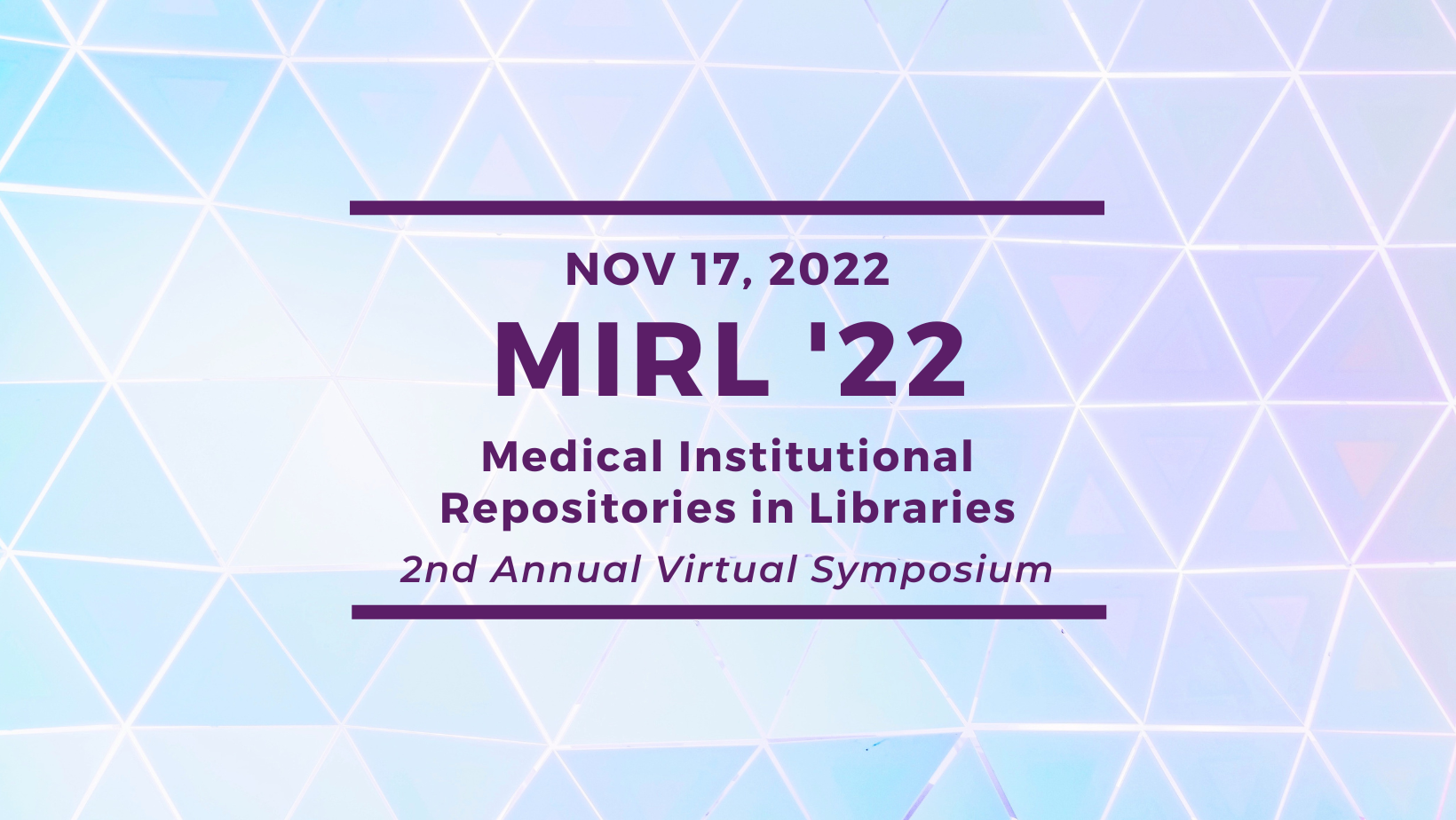Presentation Type
Lightning Talk
Date
2022-11-17
Description
Since implementing our institutional repository in 2014, the Library at Advocate Aurora Health has worked closely with Aurora graduate medical education (GME) to capture and showcase the scholarly activity coming out of their residency and fellowship programs. In early 2022, in an effort to reduce duplicative efforts, this partnership evolved to make the Advocate Aurora Health Institutional Repository the sole place where this scholarly activity was captured and reported out from. In this lightning talk, I will explain how we worked with our stakeholders and the vendor to accomplish this. First, we met with Aurora GME's research support team to better understand their new reporting needs. With this knowledge, we then worked with bepress to find out where the disparate pieces of necessary information were available and to also add custom metadata when necessary. Finally, we created a workflow where we combined data points only available in the Digital Commons Content Inventory reports with data points only available in Dashboard reports and presented them in a single, simplified report that met stakeholder requirements.
Keywords
institutional repository; digital commons; metadata workflows
Open Access
1
Rights and Permissions
Copyright © 2022 Jennifer Deal
Repository Citation
Deal, Jennifer, "Tailoring Reports to Stakeholder Needs: Combining Data from Digital Commons Content Inventory and Dashboards" (2022). Medical Institutional Repositories in Libraries (MIRL). 11.
https://hsrc.himmelfarb.gwu.edu/mirl/2022/program/11
Tailoring Reports to Stakeholder Needs: Combining Data from Digital Commons Content Inventory and Dashboards
Since implementing our institutional repository in 2014, the Library at Advocate Aurora Health has worked closely with Aurora graduate medical education (GME) to capture and showcase the scholarly activity coming out of their residency and fellowship programs. In early 2022, in an effort to reduce duplicative efforts, this partnership evolved to make the Advocate Aurora Health Institutional Repository the sole place where this scholarly activity was captured and reported out from. In this lightning talk, I will explain how we worked with our stakeholders and the vendor to accomplish this. First, we met with Aurora GME's research support team to better understand their new reporting needs. With this knowledge, we then worked with bepress to find out where the disparate pieces of necessary information were available and to also add custom metadata when necessary. Finally, we created a workflow where we combined data points only available in the Digital Commons Content Inventory reports with data points only available in Dashboard reports and presented them in a single, simplified report that met stakeholder requirements.


